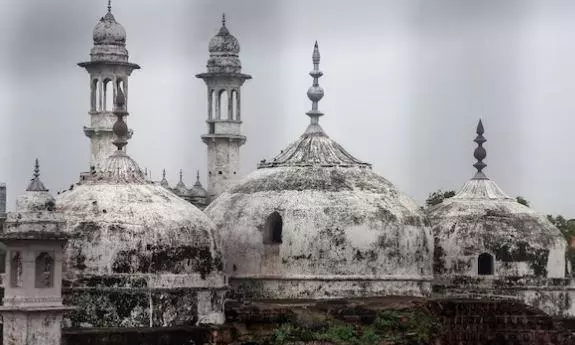
Gyanvapi: The judiciary itself should ensure justice
text_fieldsFollowing the inauguration of the Ram temple, the Hindutva advocates are on a steady campaign to ensure the polarisation of community votes in the face of the upcoming general elections. Two days ago, Vishwa Hindu Parishad International Working President Alok Kumar made a demand that the Gyanvapi Masjid in Varanasi, Uttar Pradesh be handed over to for the Hindu community. This demand came on the heels of the report that the 'scientific survey' conducted by the Archaeological Survey of India (ASI) with the permission of the court in response to the demand of Hindu petitioners has found that a Hindu temple had existed in the said place earlier. The VHP claims that the inscriptions on the west wall of the mosque and the stupas used are Hindu symbols and the few Muslim symbols found there date back to the era of Aurangazeb in 17th century. It is clear that the demand well fits in with a planned move not only to capture the mosque but also to create communal polarisation.
Also read: Recovered 15 Shiv Lingas from Gyanvapi Mosque: ASI survey
It can be seen that it is the positions taken by the law courts that is being helpful for those trying to fuel new controversies like Gyanwapi. Instead of the courts nipping in the bud any such sinister moves to create controversies and to capture places of worship, things are moving in the opposite direction. In the case of Gyanwapi, a petition reached the court as early as 1991 claiming that Aurangzeb had demolished the Kashi Vishwanath temple and built the mosque and it should be open to Hindus. Following the Supreme Court's 2019 verdict in which the Babri Masjid land in Ayodhya was released for the construction of a Hindu temple, a petition was made to release the Gyanvapi Masjid land leading to a court-ordered ASI (Archaeological Survey of India) 'scientific survey' after various litigations. These petitions were questioned by the Masjid Committee before the court at various stages. Later in May 2022, the Varanasi local court allowed a videographic survey of the mosque. Crucial to this is the Supreme Court's position that conducting a survey would not violate the 1991 Act which mandated that places of worship should maintain their status quo as they existed on August 15, 1947. The survey was started on August 4 following the permission of the court. The report was submitted to the court in a sealed envelope on December 18 after several extensions. Last Wednesday, the court allowed the said confidential report to be made available to the parties. With that, a new controversy erupted. The Hindutva advocates led by the VHP are arguing that the remains of Hindu images and carved sculptures have been found there and according to the survey report, it has been proved that a Hindu temple existed there and thus things have reached such a pass that the VHP is demanding the mosque be given away.
Also read: Hindu Mahasabha demands Muslims to return Gyanvapi Mosque
Crucial in this case was the Supreme Court's refusal to quash the Allahabad High Court order clearing the ASI survey. The Places of Worship (Special Provisions) Act of 1991 was intended to prevent such legal proceedings. However, it is unclear what the court meant by conducting a mere survey. In August 2023, the Masjid Committee did argue in the Supreme Court that the ASI survey would be a violation of the 1991 Act. They raised two important questions. First, why should there be a surveydigging the history of an event that is said to have happened 500 years ago? Second, will the survey not be contrary to the objectives stated in the preamble to the Protection of Places of Worship Act, 1991? Legal experts point out that there were no direct answers to the two questions in the court ruling. Moreover, even in the Babri Masjid case judgement of 2019, even as it was generally considered unfair, the 1991 Act was more strongly underlined. It also emphasised the duty of the state to treat all faiths equally. The 2019 judgement even held that the essence of the said Act was part of the basic principle of the Constitution. Amid all this, the same judiciary has given clearance for the ASI survey which opens the way for conflicts and emotional undercurrents thereby treating it lightly as a mere survey based on a few pleas. A responsible citizenry can only hope that if the judiciary itself had resolved the issues emanating from the actions of courts, the opportunity for those waiting to ignite controversies could have been avoided.
Also read: Will not eat food grain till Gyanvapi is 'liberated': Kashi seer























